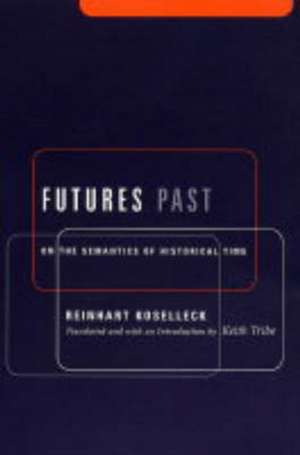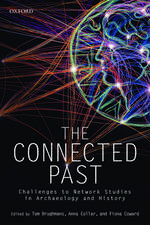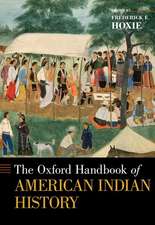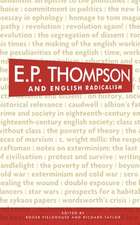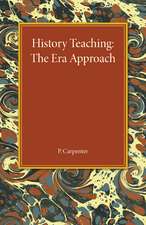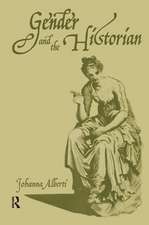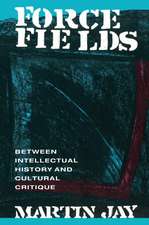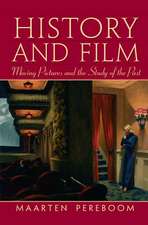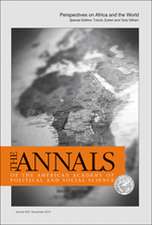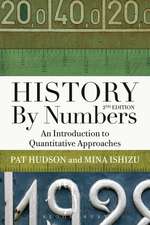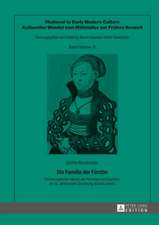Futures Past – On the Semantics of Historical Time
Autor Reinhardt Kosellecken Limba Engleză Paperback – 12 aug 2004
With the advent of modernity in the late eighteenth-century every aspect of human life was radically transformed, including the experience of time. As the ever-accelerating pace of the modern world left people with briefer intervals of time in which to gather new experiences and adapt to social and technological changes, the demands that were placed on the future correspondingly increased. The promises of modernity -- freedom, progress, opportunity -- began to produce expectations and hopes that broke free of the present and projected utopian visions of unbounded possibility onto the future. In this provocative and erudite book, Koselleck explores the shifting perceptions and conceptions of historical time that have emerged over the past two centuries. Relying on an extraordinary array of witnesses and texts -- from politicians, philosophers, theologians, and poets to proverbs, lexica, Renaissance paintings, and the dreams of German citizens during the Third Reich -- Koselleck argues that the past and the future have become "relocated" in relation to each other, and that "history" has emerged as a new kind of temporality with distinct characteristics and ways of assimilating experience.
Chronological time is generally tied to social and political actions, to the concrete experiences of human beings. Yet in reality historical events and epochs intermingle and overlap, transcending strict temporal distinctions that can be derived from physical or astronomical phenomena. In the present context of globalization -- where many cultures and perceptions become superimposed upon one another -- the modern world faces not only temporal acceleration but also historical disorientation. Koselleck believes that any given present is simultaneously a "former future" that was once defined by specific terms and ideas. By analyzing the semantics of historical time, Koselleck brings into focus the far-reaching impact that conceptions of time have on social organization, revealing that human history results as much from structure of temporal experience as from the contingencies of uncontrollable events.
Preț: 225.42 lei
Nou
Puncte Express: 338
Preț estimativ în valută:
43.14€ • 46.57$ • 36.18£
43.14€ • 46.57$ • 36.18£
Carte disponibilă
Livrare economică 29 martie-12 aprilie
Livrare express 15-21 martie pentru 31.13 lei
Preluare comenzi: 021 569.72.76
Specificații
ISBN-13: 9780231127714
ISBN-10: 0231127715
Pagini: 336
Ilustrații: Illustrations
Dimensiuni: 155 x 227 x 18 mm
Greutate: 0.48 kg
Ediția:New.
Editura: Columbia University Press
Locul publicării:United States
ISBN-10: 0231127715
Pagini: 336
Ilustrații: Illustrations
Dimensiuni: 155 x 227 x 18 mm
Greutate: 0.48 kg
Ediția:New.
Editura: Columbia University Press
Locul publicării:United States
Descriere
Modernity in the late eighteenth century transformed all domains of European life -intellectual, industrial, and social. Not least affected was the experience of time itself: ever-accelerating change left people with briefer intervals of time in which to gather new experiences and adapt. In this provocative and erudite book Reinhart Koselleck, a distinguished philosopher of history, explores the concept of historical time by posing the question: what kind of experience is opened up by the emergence of modernity? Relying on an extraordinary array of witnesses and texts from politicians, philosophers, theologians, and poets to Renaissance paintings and the dreams of German citizens during the Third Reich, Koselleck shows that, with the advent of modernity, the past and the future became 'relocated' in relation to each other.The promises of modernity -freedom, progress, infinite human improvement -produced a world accelerating toward an unknown and unknowable future within which awaited the possibility of achieving utopian fulfillment.
History, Koselleck asserts, emerged in this crucial moment as a new temporality providing distinctly new ways of assimilating experience. In the present context of globalization and its resulting crises, the modern world once again faces a crisis in aligning the experience of past and present. To realize that each present was once an imagined future may help us once again place ourselves within a temporality organized by human thought and humane ends as much as by the contingencies of uncontrolled events.
Notă biografică
Cuprins
Introduction, by Keith Tribe
Part I. On the Relation of Past and Future in Modern History
1. Modernity and the Planes of Historicity
2. Historia Magistra Vitae: The Dissolution of the Topos Into the Perspective of a Modernized Historical Process
3. Historical Criteria of the Modern Concept of Revolution
4. Historical Prognosis in Lorenz von Stein's Essay on the Prussian Constitution
Part II. Theory and Method of the Historical Determination of Time
5. Begriffsgeschichte and Social History
6. History, Histories, and Formal Time Structures
7. Representation, Event, and Structure
8. Chance as Motivational Trace in Historical Writing
9. Perspective and Temporality: A Contribution to the Historiographical Exposure of the Historical World
Part III. Semantic Remarks on the Mutation of Historical Experience
10. The Historical-Political Semantics of Asymmetric Counterconcepts
11. On the Disposability of History
12. Terror and Dream: Methodological Remarks on the Experience of Time During the Third Reich
13. Neuzeit: Remarks on the Semantics of Modern Concepts of Movement
15. Space of Experience and Horizon of Expectation: Two Historical Categories
Notes
Part I. On the Relation of Past and Future in Modern History
1. Modernity and the Planes of Historicity
2. Historia Magistra Vitae: The Dissolution of the Topos Into the Perspective of a Modernized Historical Process
3. Historical Criteria of the Modern Concept of Revolution
4. Historical Prognosis in Lorenz von Stein's Essay on the Prussian Constitution
Part II. Theory and Method of the Historical Determination of Time
5. Begriffsgeschichte and Social History
6. History, Histories, and Formal Time Structures
7. Representation, Event, and Structure
8. Chance as Motivational Trace in Historical Writing
9. Perspective and Temporality: A Contribution to the Historiographical Exposure of the Historical World
Part III. Semantic Remarks on the Mutation of Historical Experience
10. The Historical-Political Semantics of Asymmetric Counterconcepts
11. On the Disposability of History
12. Terror and Dream: Methodological Remarks on the Experience of Time During the Third Reich
13. Neuzeit: Remarks on the Semantics of Modern Concepts of Movement
15. Space of Experience and Horizon of Expectation: Two Historical Categories
Notes
